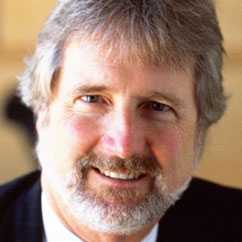Related Topics
Investing, Philadelphia Style
Land ownership once was the only practical form of savings, until banking matured in the mid-19th century. Philadelphia took an early lead in what is now called investment and still defines a certain style of it.
Medical Economics
Some Philadelphia physicians are contributors to current national debates on the financing of medical care.
Philadelphia Economics
economics
Science
Science
Big Pharma Loses Momentum

|
| Chemical Heritage Building |
listened to the analysis by G. Steven Burrill, a noted venture capitalist who specializes in this area. The big firms, like Merck, Wyeth, Johnson and Johnson have recently reported disappointing earnings, and it seems they have been reducing their American research divisions, with more use of small niche research firms as subcontractors, both American and foreign. As they tend to reduce their emphasis on research and manufacturing, Steve Burrill feels they will concentrate mainly on marketing. That sounds like good news for Wyeth, with its traditional focus on marketing, and bad news for Merck, which has always been strong in new product development.

|
| G. Steven Burrill |
Burrill also has his eye on the statistic that only 8% of health care spending is devoted to pharmaceuticals, while 40% is spent on nostrums to promote wellness. The sly observation slipped out that if 40% of health spending goes for products of questionable value, just think how big the market would be for new products that really do promote some wellness. So that, in his opinion, is where investors will prosper.
Some of us in the back of the room were troubled by these thoughts. In the first place, the major drug houses have long operated with a financial business plan that takes profits from old established drugs and uses them to pay for research on the new drugs of the future. Small niche companies, that only work on one phase of this cycle, have had difficulty financing expansion and mostly accepted a subsidiary role. You might develop a wonder drug in your garage, but you had to license it to a big pharma concern in order to thrive. The thought pops up that the protracted wait for

|
| PA Drug Industry |
Food and Drug approval might be stretching the old-drug/new-drug interval to the point where patent expiration on the current revenue generators interrupts the internal recycling of profits into new drug research. That's been a threat ever since the passage of the Kefauver Amendment, but a new twist has appeared in the form of a tidal wave of cheap liquidity from the Far East, working its way into venture capital pools and assisting the niche firms with their historical shortages of capital. If that's a significant feature of the present environment, it could fizzle out when the Far East stops pumping liquidity into world markets. A new Premier of Japan might be all it would take, or else a drop in the price of oil. Japan's interest rates are now held below 1%, while a realistic price for oil is $45 a barrel, not $65.
And as far as the promotion of wellness is concerned, that concept might just turn out to be a fad. Congress doesn't try to evaluate scientific trends, but it is very fond of insisting that "if it ain't broke, don't fix it". A major advance in the treatment of cancer and or Alzheimer's Disease might very well dampen Congressional enthusiasm for spending 15% of Gross Domestic Product on what's then left to treat, which would mostly be wellness.
Originally published: Thursday, April 19, 2007; most-recently modified: Tuesday, May 14, 2019